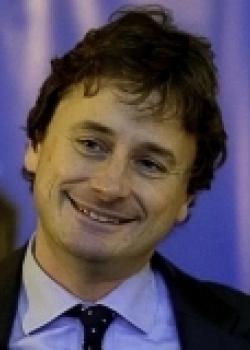Philip Whyte

On April 5th we lost our dear friend and colleague, Philip Whyte, 18 months after he was diagnosed with incurable cancer.
Born in London on 20th February 1966, Philip spent most of his childhood in France and Britain. After leaving Marlborough College, he attended the Institut d'Etudes Politiques de Paris ('Sciences Po'), before returning to Britain where he completed undergraduate and postgraduate degrees at the London School of Economics and Political Science. Europe was the focus of his working and personal life. Philip joined the Bank of England in 1990, where he worked on legislation to complete the EU's single market. In 1996, he moved to the Economist Intelligence Unit, where he wrote about the political economy of Western Europe. In 2007, he joined the Centre for European Reform.
Although a passionate supporter of Britain's membership of the EU, Philip was often at odds with the orthodoxies of the pro-European tribe. In the aftermath of the global financial crisis, he was just as critical of policies in Brussels, Frankfurt and Berlin as he was of the Eurosceptic tide in London. In contrast to most Germans (and some pro-Europeans in Britain), Philip did not see the eurozone crisis as a morality tale pitting virtuous northern Europeans against feckless southern Europeans.
The main cause of the eurozone crisis, he persistently argued, was not errant behaviour by certain member-states, but flaws in the design of the currency union itself. Two features made the eurozone a less stable currency union than, say, the United States. First, key functions that were performed at federal level in the US were carried out at state level in the eurozone; second, the European Central Bank (ECB) was more cautious than the US Federal Reserve. These features exposed the eurozone to strains that did not arise in America.
Reducing these strains, it followed, would require a less cautious central bank, and steps to federalise functions like bank resolution and deposit protection. This analysis was borne out by events in 2012: financial markets were not calmed by eurozone-wide fiscal austerity, but by the ECB's belated commitment to act as a lender of resort to eurozone governments. Philip was highly critical of Germany's management of the crisis. Germany's attempt to turn the currency bloc into a larger version of itself, he argued, would result in self-defeating fiscal austerity, debilitating cycles of wage cuts, and chronically weak domestic demand across the region. It was a recipe for economic slump, not increased competitiveness.
Philip was equally critical, however, of what he saw as the delusional debate on EU membership in the UK. Most of Britain's economic failings, he argued, originated at home rather than in Brussels. Leaving the EU would do nothing to tackle these defects or reduce the regulatory burden in the UK, and would risk turning Britain into a more insular economy, which was against the grain of its history. With a referendum on the UK’s membership of the EU looming, his good sense will be sorely missed in the public policy arena, and nowhere more so than at the CER.
After his diagnosis, Philip stopped working and filled his life with the things that he loved: his wife Jane, his friends, travel and his extensive library. He was an extraordinarily wide-ranging reader, not only of economics, politics and history, but also of science and literature. This breadth of interest helps to explain why his CER publications were so forcefully and cogently argued, as well as beautifully-written. Our thoughts are with Jane, Philip’s parents, brother and sister, and his friends.
Simon Tilford and Jagjit S Chadha
His obituary in The Guardian can be read here.
---------------------------------------------------------------------------
Philip Whyte joined the CER as a senior research fellow in September 2007. In June 2013 he became chief economist. He had previously worked as an analyst at the Economist Intelligence Unit and the Bank of England.
He wrote on numerous aspects of European politics and economics, including fiscal and monetary policy in the euro area, the transatlantic economic relationship, international trade, financial regulation, the Lisbon agenda, and EU 2020. He published opinion pieces in the Financial Times, The Times, The Guardian, the International Herald Tribune, the Wall Street Journal, El Pais, Handelsblatt and Tageszeitung.
Philip held an MSc (Econ) and a BSc (Econ) from the London School of Economics and Political Science.
